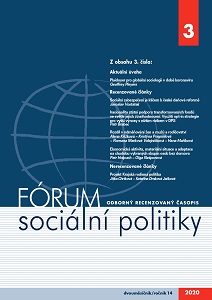Rozdíl v odměňování žen a mužů a rodičovství
The gender pay gap and parenthood
Author(s): Alena Křížková, Kristýna Pospíšilová, Romana Marková Volejníčková, Hana MaříkováSubject(s): Gender Studies, Labor relations, Economic policy, Higher Education , Family and social welfare, Demography and human biology, Socio-Economic Research
Published by: Výzkumný ústav práce a sociálních věcí
Keywords: gender wage gap (GPG); Czech Republic; within-job gender wage gap; GPG and motherhood/parenthood;
Summary/Abstract: The Czech Republic has long evinced one of the most significant differences between the average wages of men and women (GPG) in the EU. The cause of high GPG in the Czech Republic is often considered to be different levels of education or segregation into employment categories. However, segregation into employment categories explains only around a quarter of the total wage gap and women are currently more likely to have a higher (university) education than men. The article, therefore, focuses on other factors related to the GPG and poses a question on the impact of motherhood on the wage disadvantaged position of women. In the absence of data on parenthood, we test the hypothesis that the GPG is higher than average for mothers of small children indirectly through the use of age categories. We found that the overall GPG and within-job GPG is highest in those age categories where women and men are typically parents of young children and this applies to both the private and public sectors. One of the most important causes of the GPG in the Czech Republic is, therefore, maternity. We used Information System on Average Earnings (ISPV) data for the period 2002−2018 for the analysis and, based on the results, we suggest how to improve the structure of the data so that it is possible to directly monitor wage (dis)advantages connected to parenthood: it would be beneficial to monitor such variables in the CR as parenthood, place of residence, reason for absence from work, length of absence and returns to the same or other workplace, etc. Introduction of a unique code of the employed person, which would not change when a woman or man returns from parental leave is also suggested.
Journal: Fórum sociální politiky
- Issue Year: 2020
- Issue No: 3
- Page Range: 19-25
- Page Count: 7
- Language: Czech

